
OR
New 'Trek Card' introduced in Khumbu region for enhanced tourist services
Published On: July 19, 2023 08:00 PM NPT By: Enika Rai
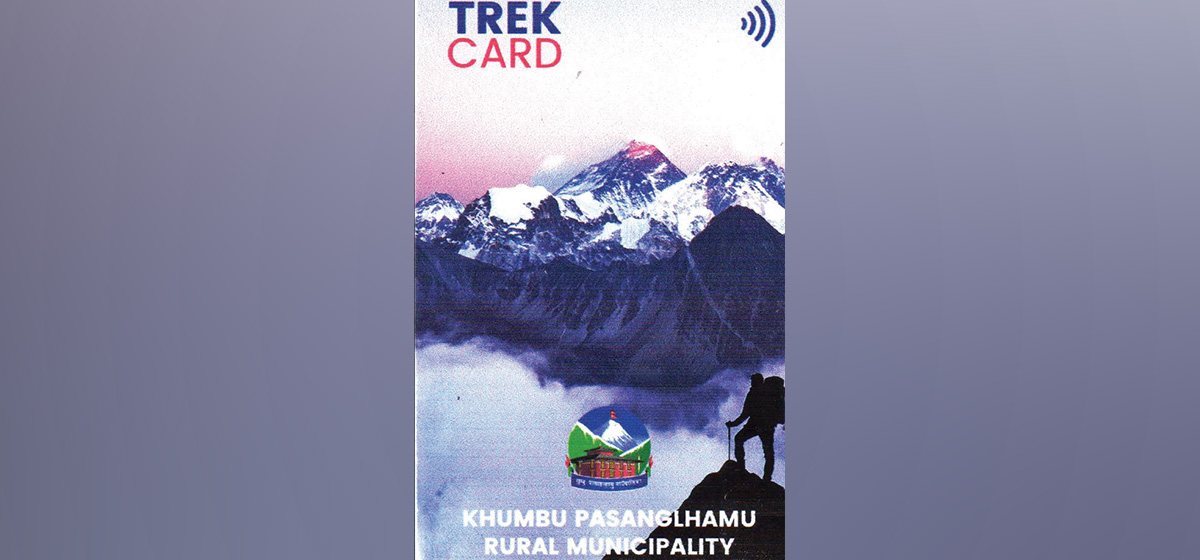
KATHMANDU, July 19: Khumbu Pasang Lhamu Rural Municipality has taken a significant step towards ensuring the safety and seamless management of tourists visiting the Khumbu region by introducing the innovative 'Trek Card.' Chairman Mingma Chiring Sherpa highlighted that the primary purpose of the 'Trek Card' is to enhance safety measures, effectively manage tourism, and promote the Khumbu area as an attractive tourist destination.
Sherpa emphasized the rural municipality's commitment to safeguarding and managing the well-being of all tourists arriving in the Khumbu area. The implementation of the 'Trek Card' is a testament to this dedication.
The 'Trek Card' is a digital system uniquely developed by Khumbu Rural Municipality. The card acts as a tracking mechanism for tourists exploring the Khumbu region. To ensure comprehensive coverage, six checkpoints have been strategically established in different locations throughout Khumbu.
Tourists are required to scan their cards at the nearest checkpoint when departing in the morning and again at the checkpoint where they are staying in the evening. Through this process, relevant information about their whereabouts is automatically relayed to the rural municipality and other pertinent agencies. The 'Trek Card' provides accurate data regarding their departure in the morning and their arrival at the evening destination.
Earlier, the digital card was distributed to approximately 11,000 tourists, and they were encouraged to use it as per the municipality's instructions. Following a successful test phase, the Khumbu Rural Municipality has officially launched the 'Trek Card' for the safety and convenience of tourists exploring the Khumbu area.
The official rollout of the 'Trek Card' commenced in Lukla, with the esteemed presence of key figures including the Chairman of Everest National Park Intermediate Area, Chief Warden, Acting Chief Administrator of the Rural Municipality, Chairperson of the Rural Municipality, and Ward Chairpersons.
Chairman Sherpa emphasized that the primary purpose of the card is to ensure the safety of tourists while also facilitating their stay in the region. With thousands of tourists visiting Khumbu during the season, the 'Trek Card' provides valuable data on tourist movements, such as the number of visitors traveling from Lukla to Namche and Phakding. This information enables efficient management of accommodation and helps in planning and delivering quality services to the tourists.
Apart from bolstering tourist safety and management, the 'Trek Card' is expected to serve as a promotional tool for the Khumbu region. The card issuance process includes sharing periodic updates about the area through the email and contact information provided by the tourists. Initially designed to focus on safety, the 'Trek Card' has evolved to encompass broader aspects of management and publicity.
Chairman Sherpa expressed optimism about the card's multifaceted benefits, as it not only guarantees the well-being of tourists but also contributes to the overall promotion and sustainable growth of the Khumbu region.
This card is issued at the Tourist Information Center building at the main entrance to Mount Everest after disembarking at Lukla Airport. Tourists will get the card at the information center while paying the entrance fee for the national park and rural municipality.
Upon arrival at the information center, tourists' passports are scanned, and they are required to fill in basic details on a form, including their country of origin, name, permanent and temporary contact numbers. The system is designed to prioritize privacy, ensuring that any sensitive information tourists wish to keep confidential is securely managed in the software without scanning. The issuance process takes just three minutes, after which the 'Trek Card' is provided to the tourists.
There is no separate fee charged for the Trek Card. The rural municipality has been charging Rs 2,000 as 'tourism service fee' under the Local Government Operation Act. Tourists get a trek card for the same fee.
The introduction of the 'Trek Card' comes in response to challenges faced by some tourists in the Khumbu region, such as getting lost and encountering difficulties in arranging accommodation. By implementing this innovative system, the rural municipality aims to minimize such obstacles and enhance the overall experience for visitors.
At present, six machines are operational for scanning cards and providing relevant tourist information, with three machines located in the village office and the remaining three in the Everest National Park.
The rural municipality has given official access to the card to Khumbu area Tourist Police, Nepali Army, Everest National Park, Revenue Branch of the rural municipality.
Ward Chairman Laxman Adhikari of ward number 4 in Khumbu Rural Municipality revealed that efforts are underway to make the 'Trek Card' mandatory in all hotels throughout the Khumbu region in the near future. The card's use enables comprehensive tracking, providing valuable information on tourists' locations, which significantly reduces security concerns.
Additionally, the 'Trek Card' proves invaluable in providing tourists with vital information about the region's geography and weather conditions. Chairman Adhikari emphasized the importance of recognizing the potential dangers posed by weather changes in the Khumbu area. He cited that even spending 24 minutes outdoors in certain places can be life-threatening, while staying outside for 24 hours in other locations may not have the same effect.
The 'Trek Card' serves as a safety measure, especially when tourists move between specific checkpoints like Goraksepp, Thukla, Gokyo, and Chukung. Failure to scan the card at these points for 24 hours raises red flags, alerting authorities to potential risks and enabling immediate search and rescue operations to prevent accidents and ensure tourist safety.
Similarly, the 'Trek Card' respects personal privacy and does not monitor tourists in real time. The system only provides information on morning departures and evening arrivals, as well as details on the locations where the card is scanned. Throughout the day, the card does not monitor tourists' activities, safeguarding their privacy while still ensuring efficient safety measures.
“Although the rural municipality is using this card only for foreign tourists, it is also preparing to use it for Nepali tourists in the near future,” said the ward chairman Adhikari.
You May Like This

Over 500 thousands foreign tourists visit Nepal in six months
KATHMANDU, July 20: In the first six months of the year 2018, Nepal welcomed over 520,000 tourists from various parts... Read More...
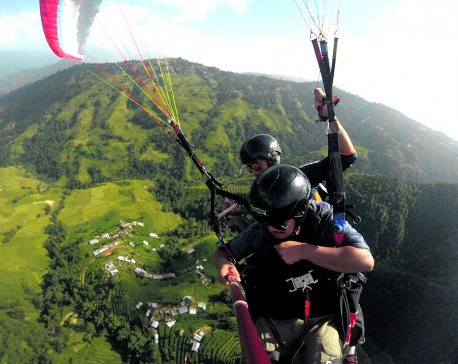
Paragliding over Kathmandu attracts tourists
KATHMANDU, Nov 11: Paragliding, an adventurous sport, has been flourishing as a commercial tourist attraction in Nepal. In Kathmandu, it is... Read More...

Foreigner tourists help rebuild quake-damaged school building
KATHMANDU, Dec 5: The quake-damaged school building of Sita Devi Lower Secondary School at Batashe in Sindhupalchowk district has received... Read More...
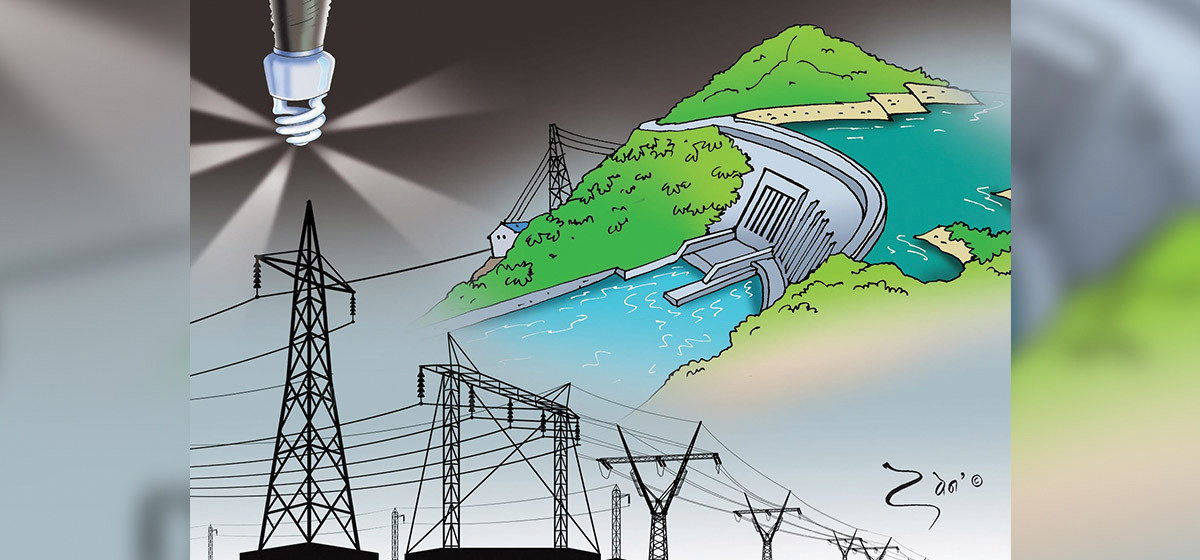
-1200x560-wm_20240503161056.jpg)
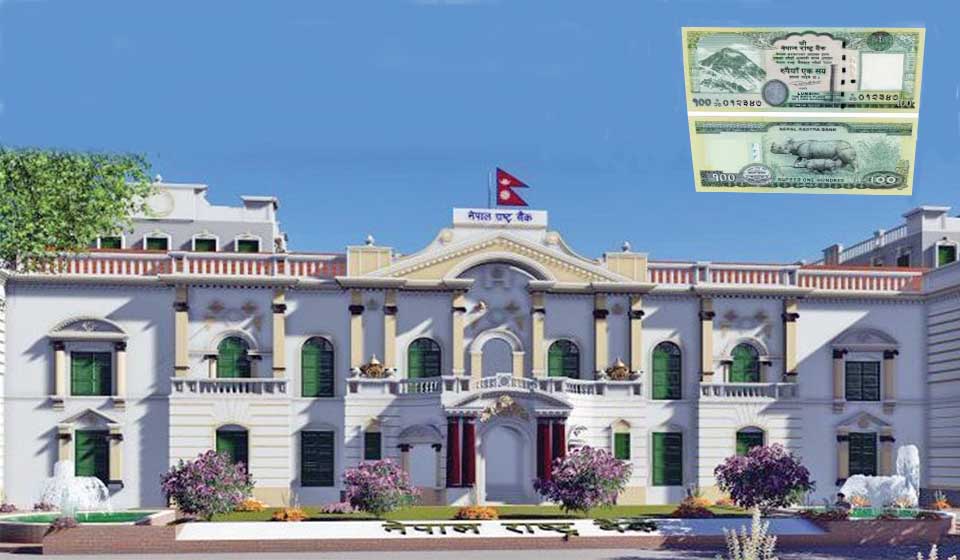
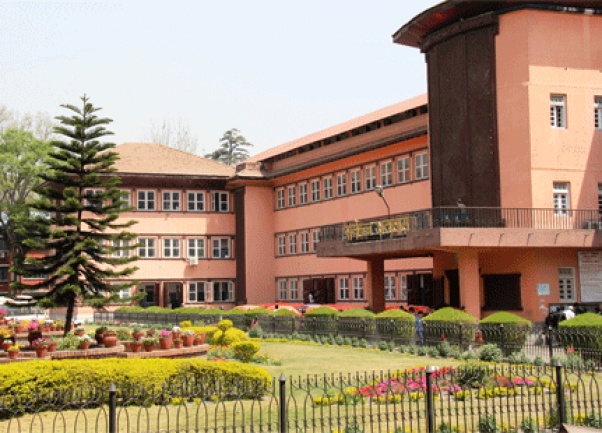
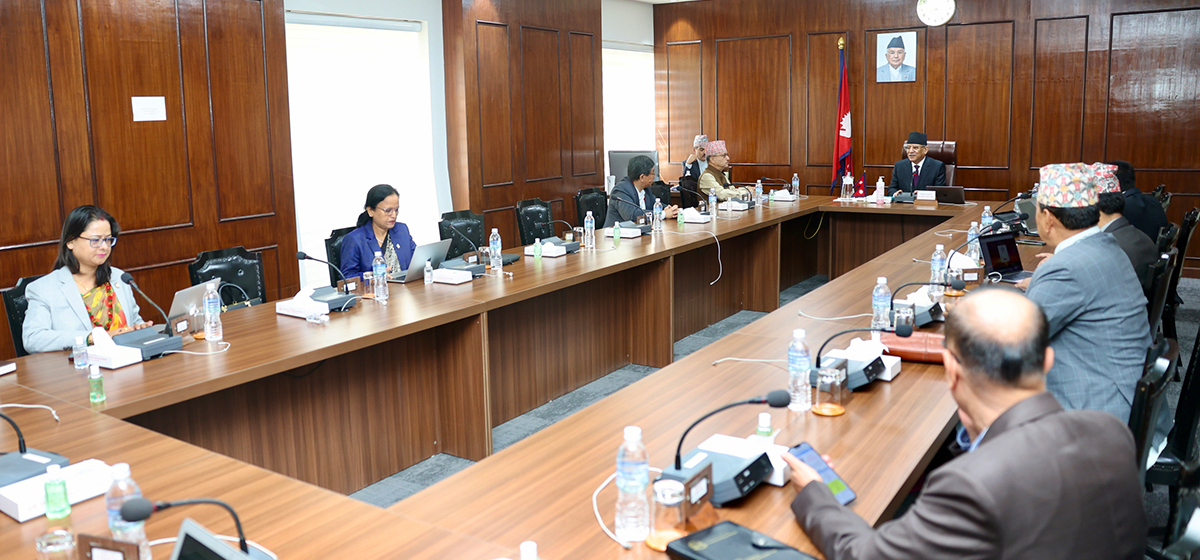
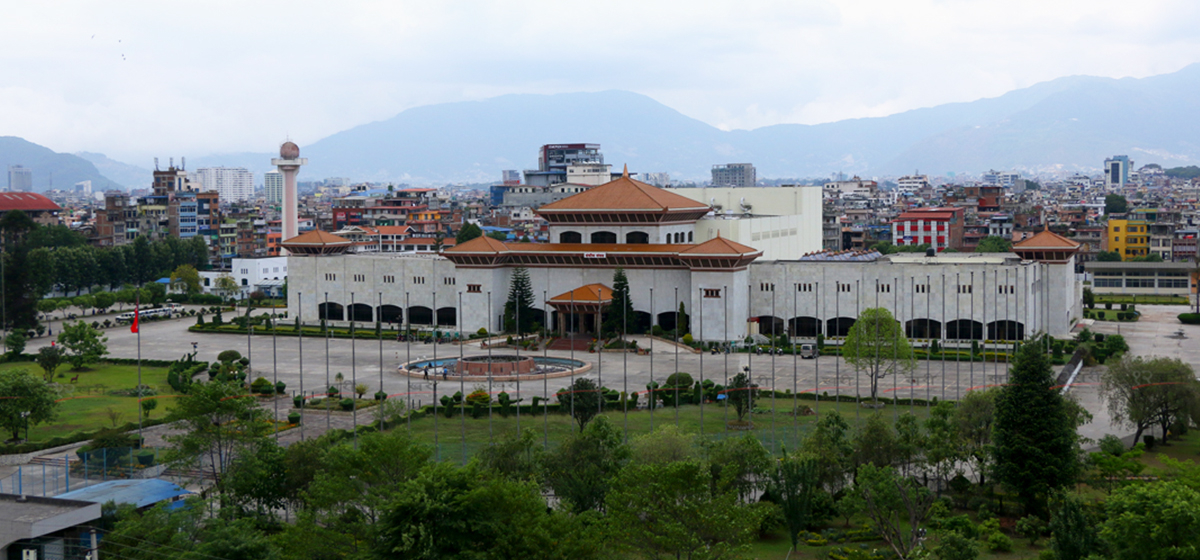


-1200x560-wm_20240503161056.jpg)
Just In
- Over two dozens bills stalled in previous parliamentary session yet to be registered for deliberation
- Japanese Foreign Minister Yoko Kamikawa to visit Nepal on Sunday
- Cabinet transfers six secretaries
- KMC’s 35-day ultimatum to RB Complex and People's Plaza to settle outstanding taxes
- Govt reduces fiscal equalization grant by Rs 317.4 million in Makwanpur
- Govt approves proposal to feature new Nepal map that includes Kalapani, Lipulekh and Limpiyadhura on 100 rupee note
- Madhesh: LSP’s provincial assembly member Abhiram Sharma suspended
- Flight operations again halted at PRIA on Friday



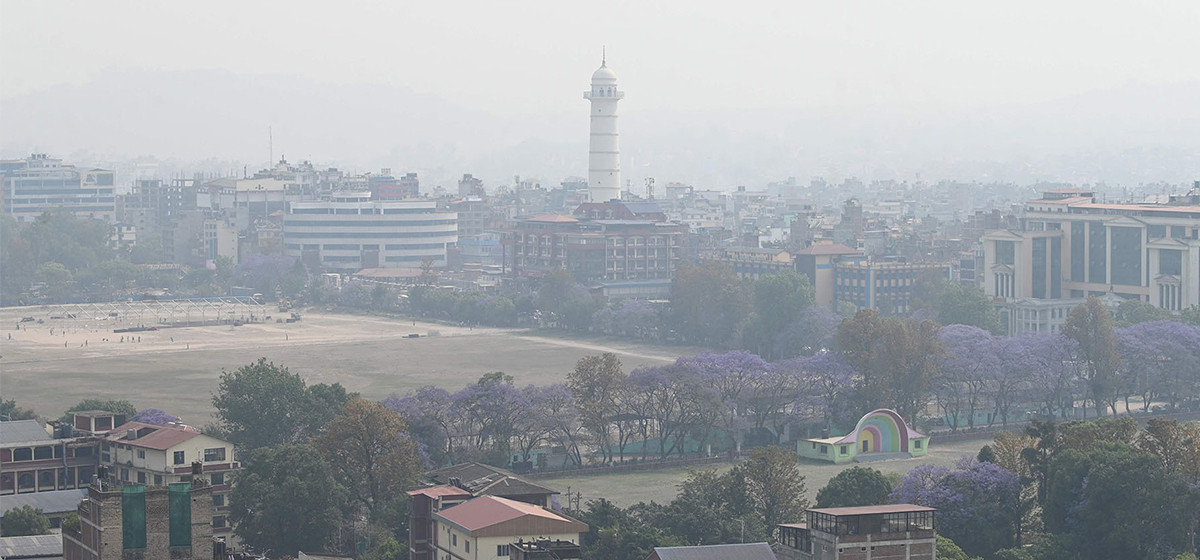




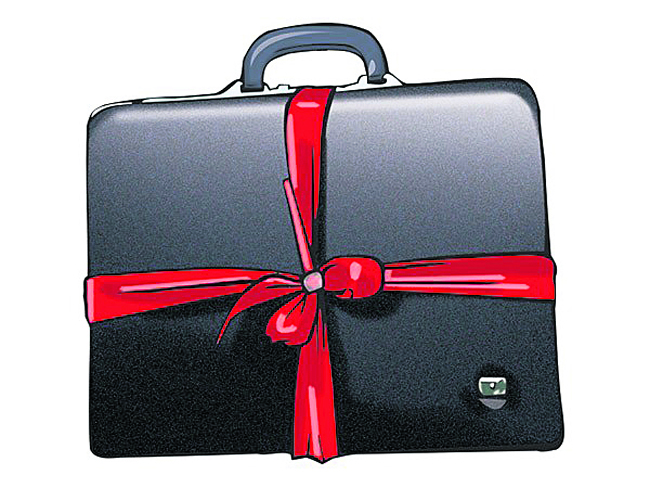
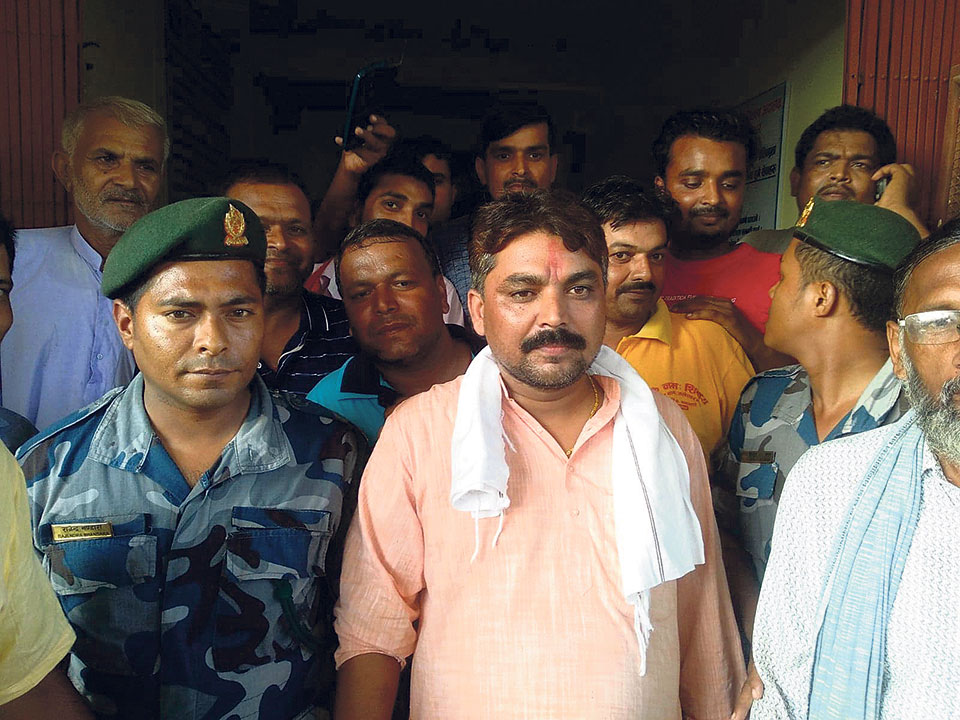
Leave A Comment